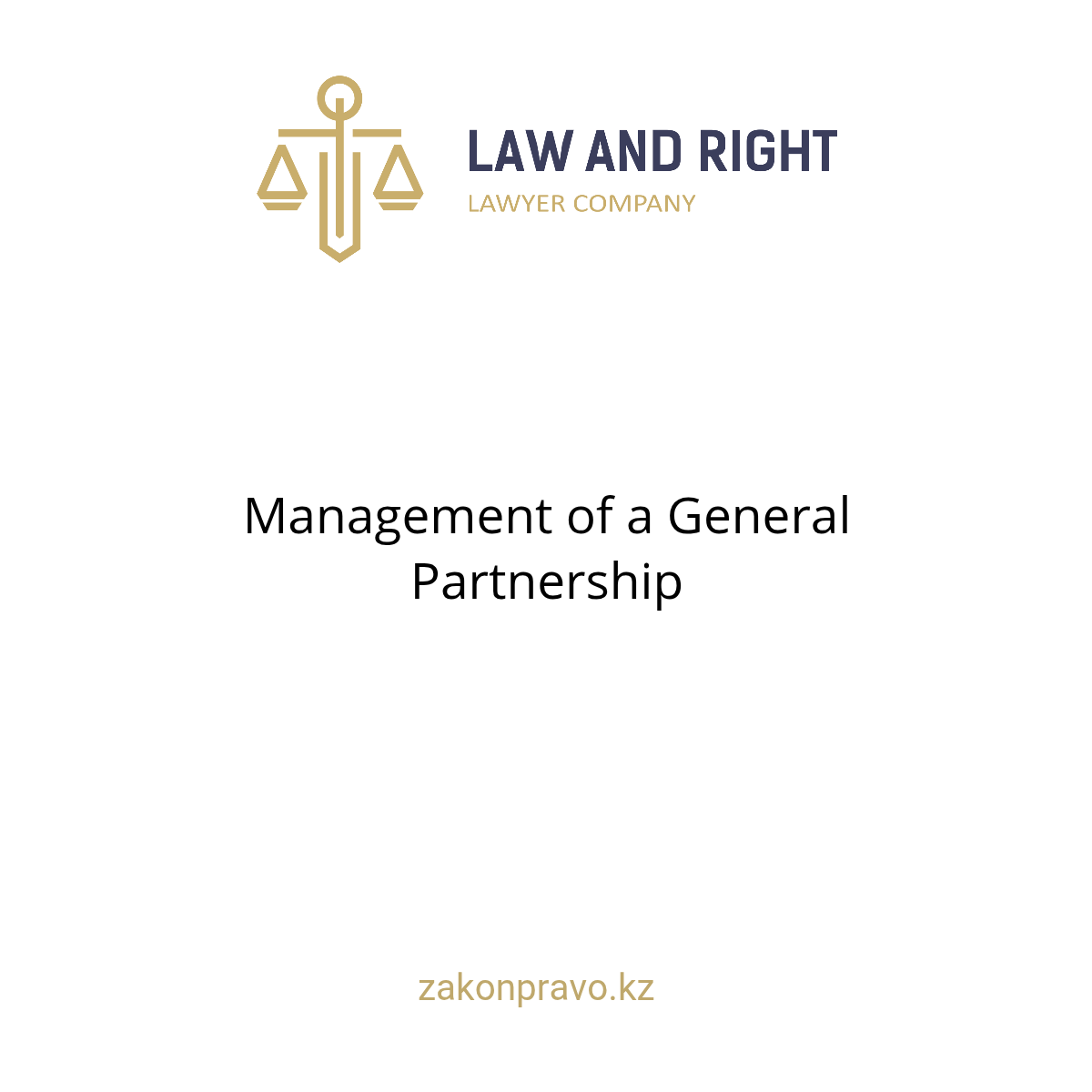Management of a General Partnership
📘 Article 65 of the Civil Code of the Republic of Kazakhstan: Management of a General Partnership
🔷 1. Supreme Governing Body — General Meeting of Participants
Clause 1:
“The supreme body of a general partnership is the general meeting of participants. Decisions on internal matters are made by the unanimous agreement of all participants…”
📌 Analysis:
- Unlike LLPs, general partnerships prioritize unanimous decision-making.
- However, the partnership agreement may stipulate majority voting as the decision-making rule.
- By default, each participant has one vote regardless of their contribution unless otherwise provided in the partnership agreement.
📎 Related Provision: Article 60 of the Civil Code of the RK — similarly establishes that the general meeting is the supreme body in business partnerships.
📍 Practice: In case No. 2-4563/2020, the court invalidated a decision of the general partnership meeting made without the opinion of one of the participants, since the right to make decisions by majority was not provided.
🔷 2. Executive Bodies of a General Partnership
Clause 2:
“Management of the partnership is carried out by executive bodies…”
📌 Analysis:
- Executive bodies may be:
- Sole (e.g., director),
- Collegial (e.g., board).
- Their authority and appointment procedures must be specified in the founding documents.
📎 Related Provisions:
- Article 60 of the Civil Code of the RK (general rules on business partnerships).
- Article 41 of the Civil Code of the RK — minimum requirements for founding documents.
🔷 3. Prohibition on Competition by a Participant
Clause 3:
“A participant may not, without the consent of the other participants, conduct transactions on their own behalf that are similar to the partnership's activities…”
📌 Analysis:
- This is a non-compete rule specific to general partnerships.
- Violation of this prohibition gives the partnership alternative remedies:
- A claim for damages;
- A claim to transfer the gained profit (e.g., income or property).
📍 Example: A participant engaged in supplying building materials concluded a contract with the same client via their sole proprietorship. The court required the transfer of the profit to the partnership (case No. 2-1133/2019).
🔷 4. Obligation to Provide Information
Clause 4:
“The bodies responsible for management must provide full information to participants upon request…”
📌 Analysis:
- This is a direct guarantee of management transparency, especially important in partnerships based on personal trust.
- Participants have unlimited access to information, including:
- Accounting records,
- Commercial contracts,
- Financial status data.
📍 Case Law: The court upheld a claim by a participant against the executive body that refused to provide information about the partnership's obligations, recognizing this as a violation of corporate rights (case No. 2-4488/2021, Astana).
🔷 5. Consequences of Actions Without Authority
Clause 5:
“If a participant acted without authority but in the partnership’s interest, they may claim compensation if they prove the benefit to the partnership…”
📌 Analysis:
- The principle of unjust enrichment is applied in the interest of fairness.
- A participant may be compensated if:
- Their actions resulted in a benefit to the partnership;
- The benefit exceeds the incurred expenses;
- The actions were done in the partnership’s interest, not for personal gain.
📍 Example from Practice: A participant paid for the office rent from personal funds without approval. The partnership was obliged to reimburse the amount as it allowed continued operation (case No. 2-893/2022).
📌 Conclusion:
Article 65 of the Civil Code of the RK establishes:
- A consensus-based management model in general partnerships;
- Strict non-compete obligations for participants;
- The duty of partnership bodies to ensure transparency and good faith;
- The right to reimbursement for expenses incurred in the partnership’s interest.
These provisions highlight the personal and trust-based nature of general partnerships and reinforce mutual responsibility among participants.
Attention!
Law and Law Law Law draws your attention to the fact that this document is basic and does not always meet the requirements of a particular situation. Our lawyers are ready to assist you in legal advice, drawing up any legal document suitable for your situation.
For more information, please contact a Lawyer / Attorney by phone: +7 (708) 971-78-58; +7 (700) 978 5755, +7 (700) 978 5085.
Attorney at Law Almaty Lawyer Legal Services Legal Advice Civil Criminal Administrative Cases Disputes Protection Arbitration Law Firm Kazakhstan Law Office Court Cases


